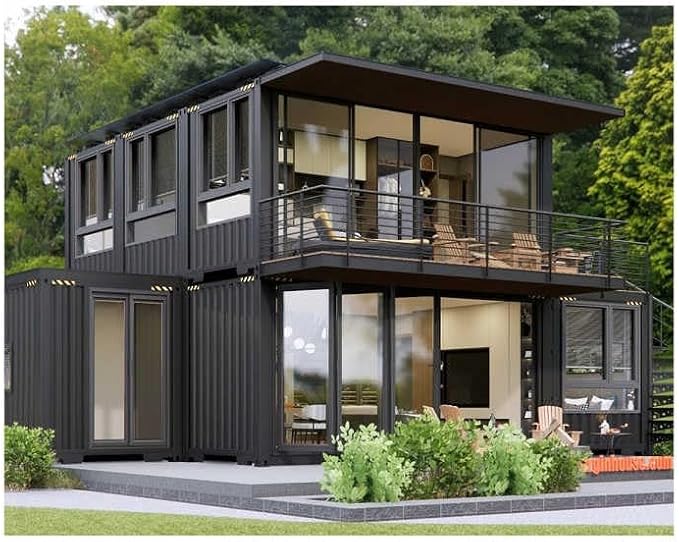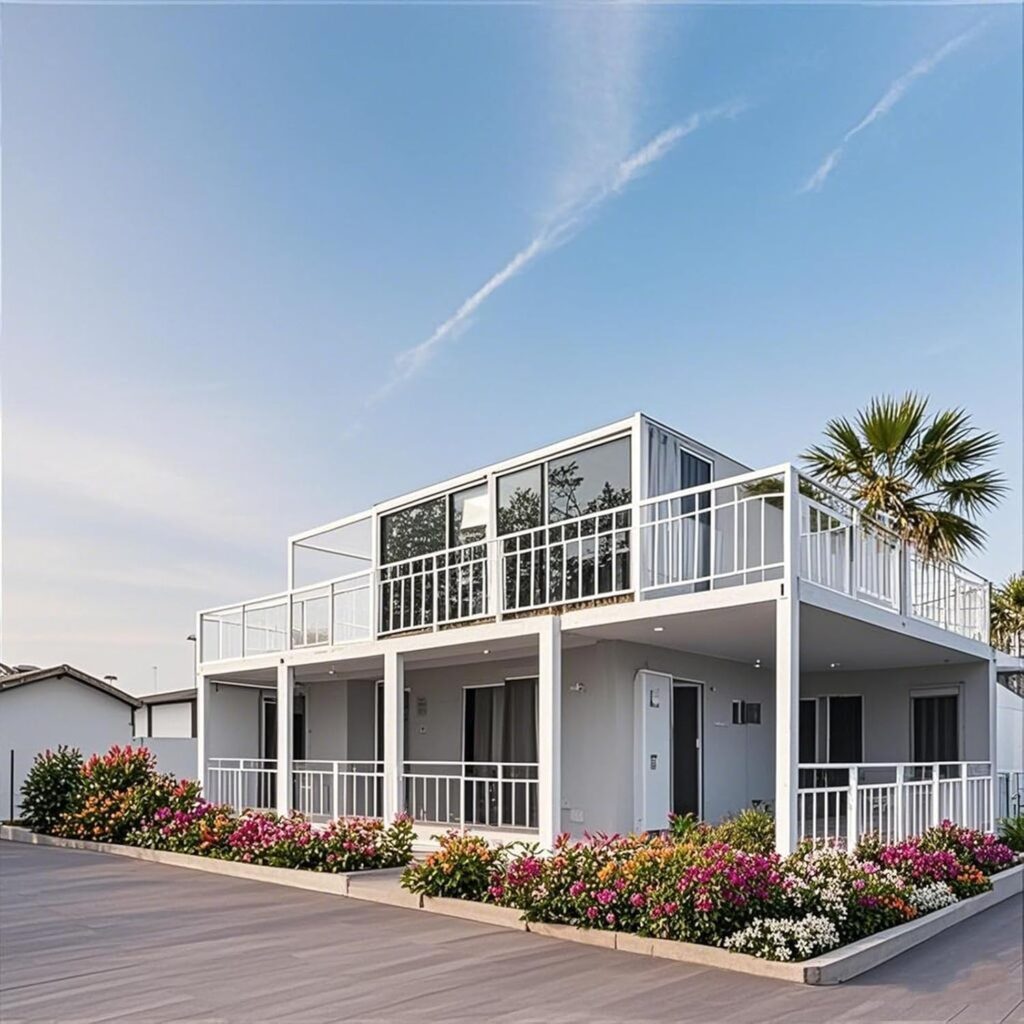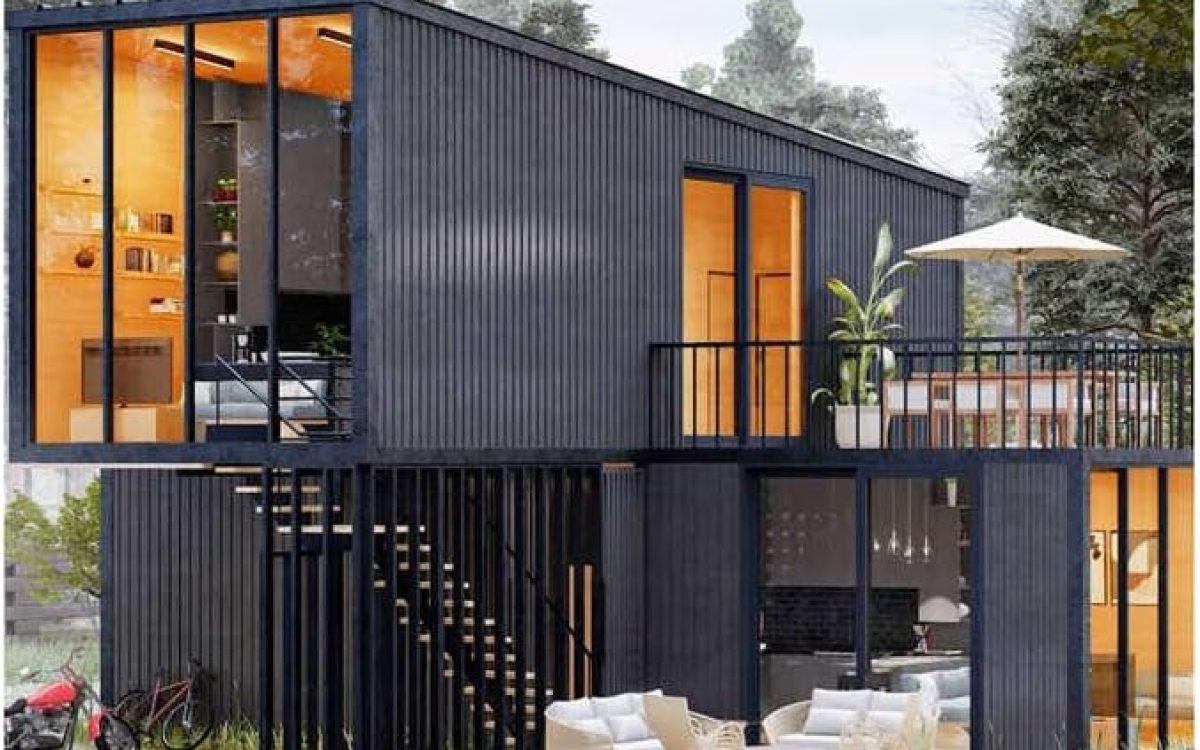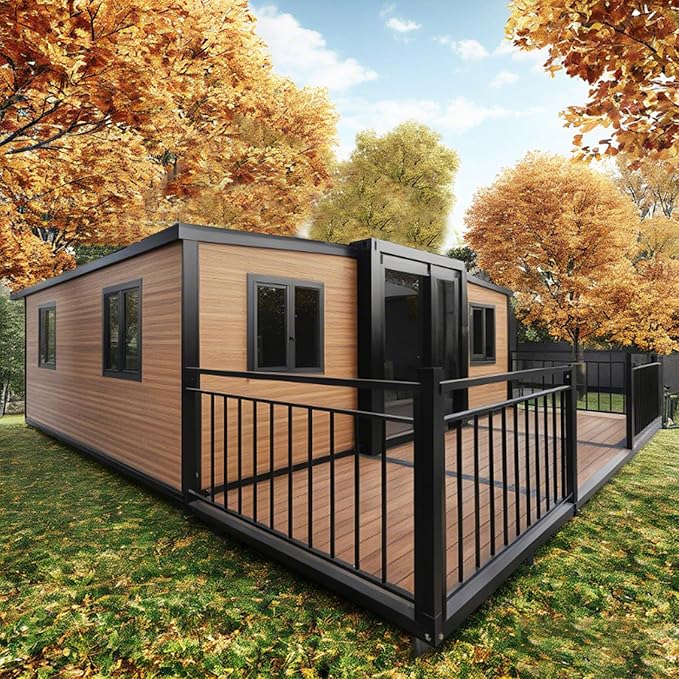Are you tired of conventions and dreaming of a life that truly represents you? For many, this quest leads to a fascinating dilemma: life in a motor home, with the road as your backyard, or the stability and design of a prefabricated house. Both options promise autonomy and a break from tradition, but they offer very distinct paths to realizing that dream. Which one aligns more with your desire for freedom and your vision of an ideal home? Get ready for a detailed analysis that will help you unravel the unique aspects of each lifestyle, focusing on what truly matters for your decision.
The Freedom Dilemma: Defining Your Next Chapter
Living differently. That’s the essence of both the motor home and the prefabricated house. However, the freedom each offers manifests in unique ways. A motor home symbolizes absolute geographical freedom, the ability to change landscapes and routines at any moment, without ties. It’s the home that follows you, a constant invitation to adventure. A prefabricated house, on the other hand, represents the freedom of choice and customization in a fixed home, built intelligently, quickly, and with a focus on sustainability. It frees you from lengthy construction processes and exorbitant costs, delivering a superior quality home in record time. Will your next chapter be itinerant or solidly rooted? Understanding this distinction is the starting point for your choice
. Motor Home: Your Home on Wheels, the World at Your Doorstep
Life in a motor home is for those who long for ever-new horizons. Imagine waking up each day to a different view, be it a pristine beach, a mountaintop, or the heart of a historic city. The main advantage is unrestricted mobility, the ability to take your home wherever the road leads you. It’s a lifestyle that favors minimalism and adaptability, where every object has a purpose and space is maximized. For many, it’s the realization of the dream of traveling the world without giving up the comfort of their own bed and a familiar kitchen. The freedom to come and go without reservation is the central promise of a motor home, transforming every journey into an extension of your home.

2-Story Expandable Portable Prefab House
Need flexible living space? Explore this versatile 2-story expandable prefab on Amazon now!
Prefabricated House: The Power of Smart Fixity
In contrast to nomadic life, a prefabricated house offers a different kind of freedom: that of having a fixed home that is both modern, efficient, and intelligently built. Far from being an ordinary dwelling, it incorporates the most advanced in design and sustainability, being precisely factory-built and quickly assembled on your plot. This means less waste, greater quality control, and the ability to customize every detail to make the space truly yours. It’s the choice for those looking to put down roots in a location, build a community, and have a spacious, comfortable home, but with the advantage of faster, more economical, and ecologically conscious construction compared to traditional methods.
Initial Cost: Where Does Your Money REALLY Go?
When discussing initial cost, both a motor home and a prefabricated house have their specifics. A motor home can range from more compact, used models with accessible prices, to luxury vehicles that exceed the value of many homes. The initial investment involves purchasing the vehicle, interior adaptations, and registration fees. For a prefabricated house, the initial cost focuses on the project acquisition, module manufacturing, and transportation to the site, in addition to a simplified foundation. Generally, a medium-sized prefabricated house tends to be more economical than an equivalent conventional construction. The decision here lies in where you prefer to allocate your capital: in the mobility of the vehicle or in the physical structure and land of a fixed home.
Maintenance Costs: The Ongoing Expenses of Your Choice
Maintenance costs are a crucial factor distinguishing these two options. A motor home, being a vehicle, requires ongoing expenses such as fuel (which can be significant), mandatory vehicle insurance, mechanical maintenance, tires, and often parking or overnight fees at campsites. There’s also the natural wear and tear of the structure due to constant movement. A prefabricated house, on the other hand, has maintenance costs similar to a conventional house, but often reduced due to the high quality of materials and construction precision. This includes utility bills (water, electricity, internet), taxes (property tax), and minor structural repairs, which are less frequent. Evaluating these recurring expenses is essential for planning your long-term budget.

2-Story Expandable Portable Prefab House
Need flexible living space? Explore this versatile 2-story expandable prefab on Amazon now!
Flexibility and Mobility: The Essence of Your Life
Flexibility and mobility are at the core of the comparison. A motor home offers almost limitless mobility. You can change addresses at any time, exploring different cities and landscapes without the need to pack and unpack. This is the epitome of freedom on the road. A prefabricated house, while a fixed structure, offers flexibility in other aspects. Many modular models can be expanded with the addition of new modules, adapting to your needs over time. In some cases, smaller houses can even be relocated. However, the foundation is fixed. The choice here is about which type of “freedom” resonates more with you: that of constant movement or that of an adaptable home without the complications of traditional construction.
Comfort and Space: Prioritizing Your Quality of Life
When it comes to comfort and space, the scale tips towards the prefabricated house. Due to its vehicular nature, a motor home has inherent limitations in square footage and layout, requiring very clever storage solutions. Space is optimized to the extreme, but it’s still a reduced space. A prefabricated house, on the other hand, offers the possibility of spacious layouts, with multiple bedrooms, bathrooms, living rooms, and full kitchens. You can enjoy larger outdoor areas, such as gardens and verandas, and have a dedicated space for every activity. Thermal and acoustic comfort, generally superior in prefabricated houses due to materials and construction techniques, also contributes to a better quality of life. If having a generous space and well-defined environments is your priority, the prefabricated house stands out.
Sustainability: The Impact of Your Choice on the Planet
Both living styles can embrace sustainability, but in different ways. Many modern motor homes come equipped with solar panels, water harvesting systems, and waste minimization solutions, allowing for a smaller ecological footprint during travel. They encourage conscious and minimalist consumption. Prefabricated houses, in turn, are inherently more sustainable in their manufacturing process, with less material waste during construction. Additionally, when installed, they can integrate advanced solar energy systems, water harvesting and reuse, and low-impact environmental materials more robustly and permanently. The choice depends on whether you seek sustainability applied to mobility or to a fixed home with minimized environmental impact from its origin.
Bureaucracy and Legalization: Navigating Regulations
Bureaucracy and legalization are points that significantly differentiate these options. For a motor home, the process involves vehicle documentation (registration, licensing, insurance), similar to a car, and attention to traffic regulations and parking in different locations. Some countries or cities have specific rules for overnight stays for recreational vehicles. For a prefabricated house, the bureaucracy is that of civil construction, requiring building permits, environmental licenses (if applicable), and compliance with the municipal master plan where the land is located. Although prefabricated home companies usually assist in this process, it’s a type of documentation more linked to real estate ownership. Understanding these differences is crucial to avoid legal headaches.
. Community and Lifestyle: What’s Your Social Profile?
Community and social lifestyle vary drastically between the two options. Living in a motor home often leads to a life more connected to the traveler community. There’s a sense of belonging in campgrounds, RV meetups, and online groups, with a constant exchange of experiences and travel tips. It’s a more fluid life, with punctual and intense interactions. With a prefabricated house, you become part of a fixed community, be it a residential neighborhood, a condominium, or a rural area. This allows for building deeper relationships with neighbors, participating in local events, and establishing a more stable social routine. The choice here reflects your social profile: do you prefer transient and multiple connections or solid, rooted relationships?
Motor Home Essentials: Accessories That Transform Your Trip!
For life in a motor home, the right accessories are game-changers, transforming every trip into a more comfortable and safer experience. From compact camping kits that optimize space to vehicular power adapters that ensure power wherever you stop. Foldable and lightweight kitchen utensils are essential, as are portable water purifiers to ensure potable water anywhere. A GPS navigation system specific for larger vehicles can prevent headaches. Thinking about your next adventure on wheels, check out these essential motor home accessories on Amazon2-Story Expandable Portable Prefab House
Need flexible living space? Explore this versatile 2-story expandable prefab on Amazon now! which will make the road your true home.
Prefabricated Home Essentials: Technology and Comfort for Your Dream Home!
If your choice is a prefabricated home, technology and comfort are priorities to transform the project into a dream home. Investing in smart home systems is a fundamental step, allowing you to easily control lighting, temperature, and security. Multifunctional and smart furniture optimizes space and organization, while efficient appliances ensure savings and practicality in daily life. For a green touch, vertical gardening kits are ideal for compact spaces. Security is enhanced with modern home security systems. Explore these options that will bring even more intelligence and comfort to your home: check out technology and comfort for your prefabricated home on Amazon2-Story Expandable Portable Prefab House
Need flexible living space? Explore this versatile 2-story expandable prefab on Amazon now!
Live and Work: Mobile or Fixed Home Office?
The rise of the home office and remote work has brought a new dimension to the choice between a motor home and a prefabricated house. Working in a motor home offers the benefit of constantly changing “offices,” ideal for those seeking inspiration in varied landscapes. However, it requires discipline to maintain productivity in a smaller space and guaranteed internet connection in remote locations. A prefabricated house, on the other hand, provides a fixed work environment specifically designed for productivity, with dedicated office space, stable internet, and the tranquility of an uninterrupted work environment. Both scenarios are viable for remote work, but the choice depends on your priority between location flexibility and the stability of a dedicated work environment.
Resale Value and Investment: Your Long-Term Asset
When considering purchasing a motor home or a prefabricated house, resale value and long-term investment are crucial points. A motor home, like any vehicle, depreciates over time, mileage, and use. Its resale value will be influenced by these factors, as well as the market conditions for recreational vehicles. A prefabricated house, in turn, is real estate and, as such, tends to appreciate over time, especially if built on good land and with quality finishes. It behaves like a traditional real estate asset, subject to property market fluctuations. If your primary goal is investment appreciation and building a fixed asset, a prefabricated house offers more stability.
Conclusion: What’s Your Next Chapter?
The choice between a motor home and a prefabricated house is deeply personal and reflects your lifestyle and priorities. Do you long for the uninterrupted freedom of the open road, where every day is a new adventure and your home moves with you? Or do you prefer the security, comfort, and customization of a fixed home, modernly and sustainably built? Both options represent a bold step outside the conventional, offering a distinct quality of life. Evaluate your dreams, your budget, and your long-term needs. Your next chapter could be on four wheels, exploring the world, or in a custom-built house, rooted in your piece of paradise. Which path do you choose for your freedom? Let us know in the comments!








